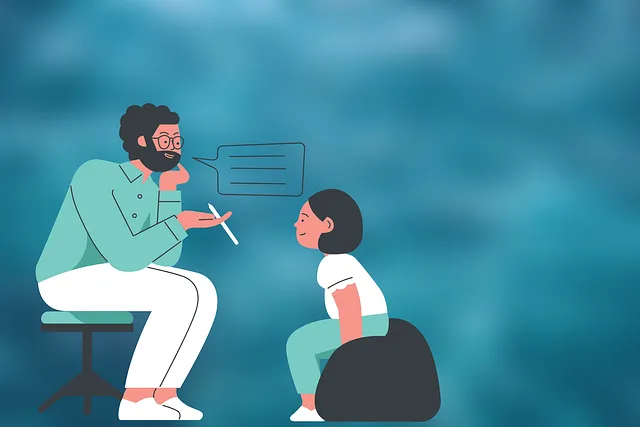Mental health is a vital aspect of overall well-being that often faces barriers due to stigma, but initiatives like the Lone Tree Community Outreach Program and organizations like Kaiser work to destigmatize and increase access to services. Podcasts are a popular and accessible way to promote mental wellness, offering practical tips, inspiring stories, and expert insights on topics like self-esteem improvement and burnout prevention. When creating a podcast series, focus on well-defined topics, incorporate personal stories and expert interviews, structure episodes clearly, and design themes that span multiple shows. Ensure high-quality audio recording and editing for clear communication, and consider including techniques for emotional well-being promotion and mental health policy discussions to deepen engagement. For optimal reach, use SEO keywords like "Lone Tree how to get mental health help Kaiser."
“Unwind and explore the realm of mental wellness with our comprehensive guide to producing a captivating podcast series. In today’s digital age, podcasts offer a unique space for open conversations about mental health, breaking down barriers and stigma. This article navigates the process of creating an engaging audio series, from understanding key topics like accessing help through Kaiser services, to planning content, mastering recording techniques, and effective distribution strategies. Dive into these insights to foster mental wellness in your community.”
- Understanding Mental Health: Breaking Stigma and Barriers to Accessing Help
- The Role of Podcasts in Promoting Mental Wellness and Self-Care
- Planning and Developing Your Podcast Series: Topics, Structure, and Guest Selection
- Recording and Editing Techniques for High-Quality Audio Content
- Distribution, Marketing, and Engagement Strategies for Your Lone Tree Podcast Series
Understanding Mental Health: Breaking Stigma and Barriers to Accessing Help

Mental health is a vital aspect of overall wellness, yet it often remains shrouded in stigma and misconception. Many individuals struggle to access help due to barriers like social taboos, fear of judgment, or lack of awareness about available resources. In the spirit of fostering open dialogue, understanding mental health involves recognizing that it’s as essential as physical well-being. By breaking down these barriers, we can encourage people to seek support and promote self-care practices that build inner strength.
The Lone Tree Community Outreach Program Implementation serves as a powerful example of how communities can come together to destigmatize mental health concerns. Similar initiatives by organizations like Kaiser can significantly enhance accessibility to mental health help. By integrating self-care strategies into everyday life, individuals can better manage stress and maintain their mental wellness.
The Role of Podcasts in Promoting Mental Wellness and Self-Care

Podcasts have emerged as a powerful medium to promote mental wellness and self-care, offering accessible and engaging content that caters to diverse audiences. With the rise in awareness about mental health, many individuals seek resources beyond traditional therapy settings, and podcasts provide an alternative format for learning and support. The ability to listen on-the-go makes them convenient companions for those navigating stress, anxiety, or seeking personal growth.
Focusing on themes like self-esteem improvement, burnout prevention strategies for healthcare providers (a pressing issue at Lone Tree as highlighted by Kaiser), and open discussions about mental health challenges, these audio platforms can foster a sense of community and normalcy around sensitive topics. By sharing practical tips, inspiring stories, and expert insights, podcasts empower listeners to take proactive steps towards enhancing their mental wellness.
Planning and Developing Your Podcast Series: Topics, Structure, and Guest Selection

When planning a mental wellness podcast series, it’s essential to consider well-defined topics that resonate with your target audience. Topics can range from exploring various aspects of emotional intelligence and burnout prevention to discussing strategies for managing stress and anxiety. Incorporating personal stories and interviews with mental health experts like those available through Kaiser, or even individuals who have overcome challenges, adds depth and authenticity to your series.
Structuring each episode with a clear introduction, main content, and conclusion helps maintain listener engagement. Consider designing your episodes around themes that span multiple shows, creating a narrative arc that encourages listeners to tune in consistently. Guest selection is crucial; choose experts and individuals who can bring unique perspectives and insights related to mental health education programs design, ensuring valuable content for your audience seeking guidance on their mental wellness journey.
Recording and Editing Techniques for High-Quality Audio Content

Recording and editing are key components in producing high-quality audio content for a mental wellness podcast series. To ensure clear and engaging episodes, consider using professional-grade microphones for recording, positioning them optimally to capture speech without background noise. The Lone Tree approach of how to get mental health help from Kaiser can guide listeners seeking support, making each episode both informative and compassionate.
During editing, focus on balancing volume levels, reducing unwanted sounds like hiccups or background chatter, and enhancing vocal clarity using audio editing software. Incorporating Emotional Well-being Promotion Techniques in your podcast’s structure can further enrich content, fostering a sense of calm and connection among listeners. Additionally, regular Mental Health Policy Analysis and Advocacy discussions can raise awareness about resources available to the community, complementing the emotional support offered through the podcast itself.
Distribution, Marketing, and Engagement Strategies for Your Lone Tree Podcast Series

To effectively reach your audience with the Lone Tree podcast series on mental wellness, consider a multi-faceted approach to distribution, marketing, and engagement. Start by utilizing popular podcast platforms like Apple Podcasts, Spotify, and Google Podcasts to ensure wide accessibility. Additionally, partner with relevant mental health organizations, such as Kaiser, for cross-promotion and increased visibility within their networks.
Leverage social media channels like Instagram, Facebook, and Twitter to build a community around your podcast. Share captivating snippets, engage with listeners through polls and questions, and encourage open conversations about mental wellness topics. Promote Mental Wellness Coaching Programs Development and Stress Reduction Methods discussed in the episodes by providing links in show notes and social media bios. Furthermore, implement Risk Management Planning for Mental Health Professionals by hosting Q&A sessions and offering exclusive content tailored to professionals navigating the complexities of their roles.
The journey towards mental wellness is a personal one, but it doesn’t have to be solitary. By leveraging the power of podcasts, as outlined in this guide, you can contribute to a growing community that breaks down stigma and barriers to accessing help. With well-planned topics, engaging structure, and thoughtful guest selection, your Lone Tree podcast series can serve as a vital resource for those seeking mental health guidance from Kaiser and beyond. Through distribution and marketing strategies tailored to your audience, your content can reach and resonate with individuals in need, fostering open conversations and promoting better mental health outcomes.
